15 Daily Household Tasks Women Were Expected To Complete Before 9am In The 1960s
They called it a routine, but honestly, it felt more like a daily marathon. Most people today can’t picture what it was like—a clock ticking, standards sky-high, and the world watching if you managed to keep up. All this before a single neighbor saw your light on through the kitchen window.
Women weren’t just expected to do these things—they were measured by them. Every bed made, every shirt pressed, every biscuit baked sent a message: You care, you’re capable, you’re trying to be enough. That kind of pressure burrowed deep. T
his isn’t nostalgia for a so-called simpler time. It’s a reckoning with what women actually lived—what they juggled, what they lost, and how much still lingers in the bones of a home. Let’s be honest about what it took to do it all, before the clock even struck.
1. Making the Bed

It started with corners. Tight, square, not a single wrinkle in sight. A common belief was that a messy bed meant a messy life—so girls were often taught hospital corners before they could even reach the center.
Some mornings, sheets were pulled so tight it ached. The room would be silent, except for the sound of knuckles grazing cotton. Bed made, the day felt a little more manageable.
This tiny victory wasn’t really about the linen. It was about control—a small patch of order in a world that demanded so much. Walking away and leaving it rumpled simply wasn’t an option. Not for women of that time.
2. Preparing Breakfast
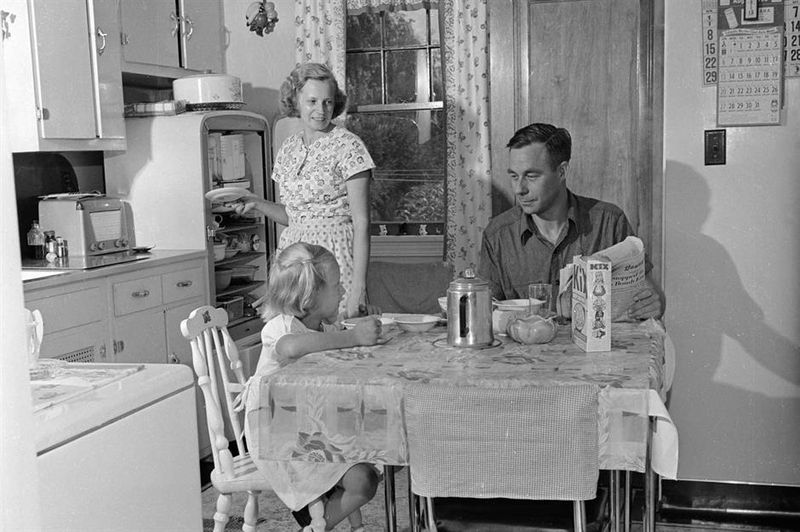
Flipping pancakes, timing bacon, clattering plates—breakfast was a performance. Everything hot and ready, all at once.
There were no shortcuts. Real eggs, real toast, and oatmeal on the coldest mornings. The clock loomed as syrup raced the school bell.
Did it matter if nobody said thank you? Maybe not. But if the plates were empty and the milk was cold, you knew you’d done something right, even if the rest of the day fell apart. The kitchen was a daily proving ground.
3. Cleaning Up After Breakfast

Clinking cups, scraping toast crumbs, and warm, soapy water filled the air. Reflections in the window above the sink blurred from steam and sweat.
There was no dishwasher humming in the corner. Leaving a mug behind felt like defeat—like the day would pile up, dish by dish.
Hands grew rough from scrubbing, but counters were wiped to a shine. There was a strange kind of pride in it, even if it came with silent questions about what else life could have looked like.
4. Ironing Clothes

The iron hissed like a snake, warning its operator to keep moving. Every wrinkle was a judgment—school shirts, husbands’ collars, even the occasional dress, if time allowed.
Burning a sleeve or leaving a crease could mean criticism for days. Ironing sometimes happened before the first cup of coffee, cords tangled at the feet.
There was a longing to leave things crumpled. But the scent of hot cotton and starch was tied to respectability. This was more than laundry—it was armor. In that room of rising steam, one became both tailor and caretaker.
5. Tidying Living Areas

You learned to spot dust before you could spell. The living room wasn’t just for living; it was a stage for anyone who might knock on the door. Magazines were stacked neatly, throws folded, toys picked up before sunlight hit the floor.
Every cushion kept its shape by force of will. There was no room for chaos, not when visitors could drop by unannounced, judging the way a rug lay or how clean the glass glinted.
Sometimes, you’d catch a glimpse of yourself in the mirror—hair out of place, arms full of clutter. Even when nobody came, you still straightened up. Because the world might not see, but you always did.
6. Light Dusting
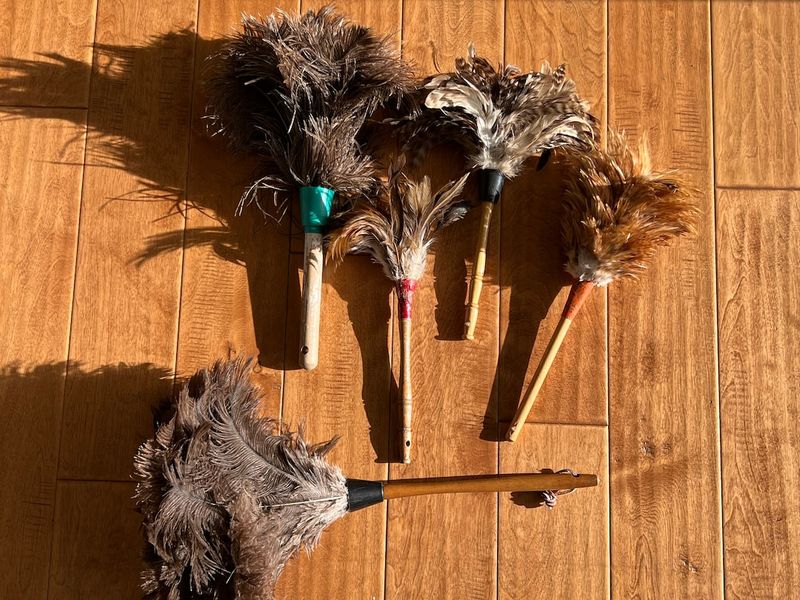
The feather duster was almost an extension of your hand. It danced over shelves, pictures, and the TV set, sweeping away memories before they could settle in the wrong place.
You watched sunlight through the window, tracing the tiny flecks swirling in the air. “Dust never takes a day off.” Neither did you.
Sometimes, it felt pointless—the dust always returned. But each swipe told a story: that you were still trying, still holding the line against chaos, even if it was just for a few shining moments. That kind of hope keeps you moving.
7. Preparing Lunches

If you ever wondered what love looked like in a 60s household, it was two sandwiches, an apple, and a thermos lined up on the counter. Lunches took planning—a mental checklist while the radio played news and weather.
Sometimes you pressed a note in the bag, sometimes just a slice of pie if yesterday went rough. Kids didn’t thank you, but you kept going. You learned to pack for the day they might have, with extras for the messes you couldn’t see coming.
Every sandwich was a little peace offering. Peanut butter stuck to fingers, but so did the care. You never rushed the folding of the bag. Some mornings, it was the only thing you could control.
8. Handling Laundry
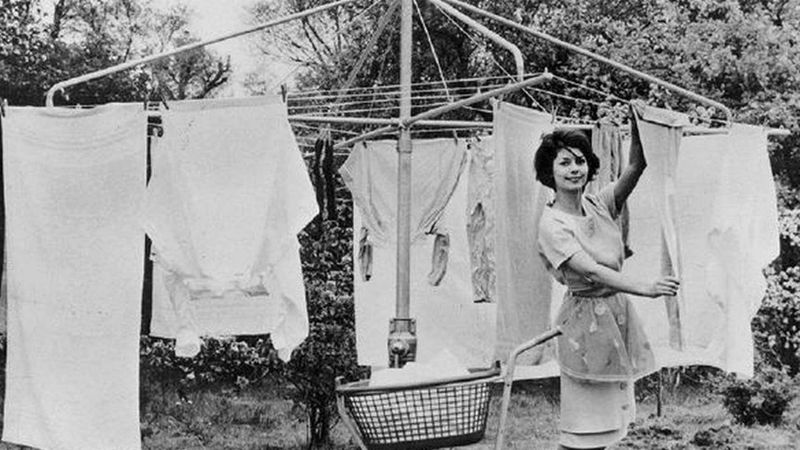
Laundry wasn’t just clothes; it was proof that you were keeping up. You counted stains, sorted socks, and wrangled the wringer washer while the house still slept.
Hanging shirts on the line, you prayed for sun and wind. If it rained, there was no backup plan—just damp hope and another mountain of towels waiting for their turn.
Crisp sheets snapping in the breeze felt like a small miracle. Sometimes you’d stand outside, arms aching, and think: this is what forever looks like. The rhythm of pins, the smell of soap, the flutter of fabric—those were the moments nobody saw but you.
9. Grocery Shopping
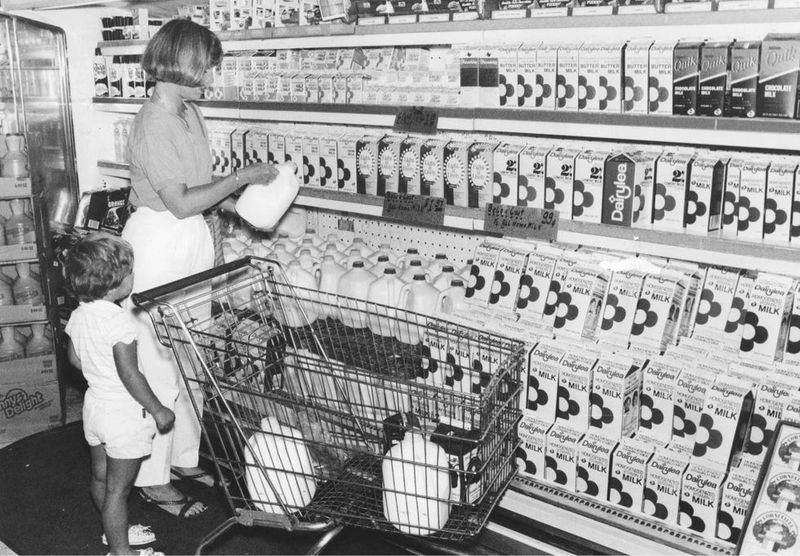
The store opened before sunrise, and so did you. Shopping wasn’t about picking what you wanted—it was about stretching a dollar, remembering every favorite, every allergy, every sale.
Sometimes, you’d walk the aisles in a mental fog, wary of forgetting something vital. The butcher knew you by name, the cashier by the circles under your eyes.
If you got everything right, no one noticed. Forget the bread, and the world came unraveled. Those aisles, with their flickering lights and linoleum floors, held all the pressure of home in a single, squeaky cart.
10. Sewing and Mending
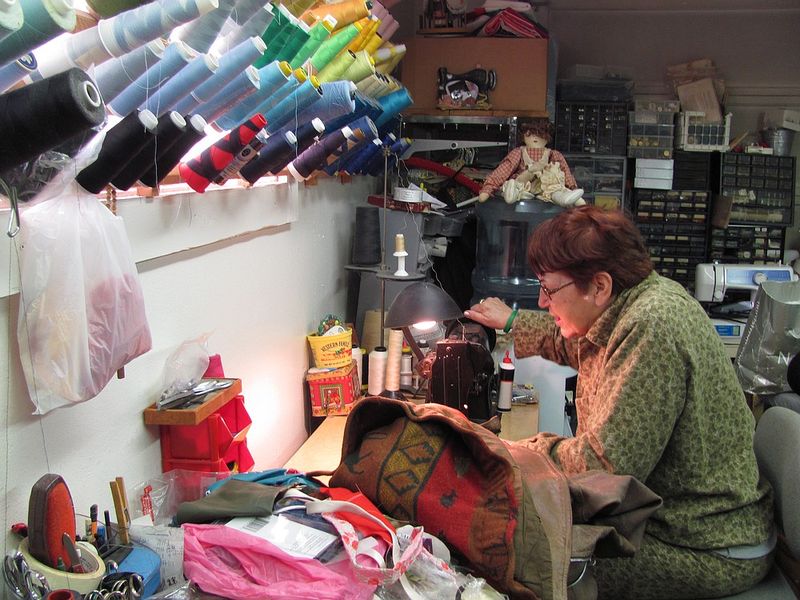
My grandma joked that a woman’s worth was measured by her mending basket. Torn knee? Missing button? You fixed them all before breakfast cooled.
The ticking clock and the hum of the sewing machine became familiar companions. You stitched patches onto elbows, hems onto skirts, and hope into every seam, even when your eyes blurred.
Not every repair was perfect. Some stitches were crooked, some fabrics didn’t quite match. But in those quiet moments, bent over a shirt, you tried to hold things together—one thread at a time.
11. Canning and Preserving Food
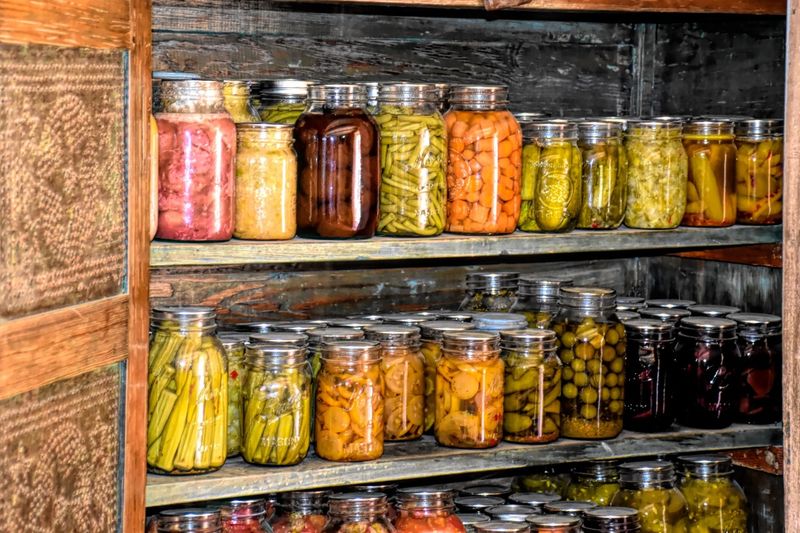
The hiss of a pressure cooker and the sweet tang of fruit meant it was canning morning. Your hands moved quick, slicing, stirring, packing jars tight before the children woke.
Preserving wasn’t about saving money—it was about saving something of yourself. Jars lined the shelves, labors bottled and labeled for the long winter ahead.
You remember the first time a jar sealed with a satisfying pop. That little sound meant success—one less thing to worry about, one more way to nourish the people you loved when the world outside turned cold.
12. Cleaning Floors

Knees pressed to checkered linoleum, you learned to scrub out the stubborn stains. Mops never reached the corners, so you did—rag in hand, sweat beading on your brow before the sun cleared the trees.
Sometimes, you’d talk to the floor. Beg it not to show every crumb, every spill, every step. The kitchen was a battlefield, and the floor, your last stand before breakfast ended and the world spilled in.
At the end, rinsing out the rag was a kind of prayer. You hoped the shine would last, but you knew tomorrow always brought more footprints. Still, you believed in clean floors like some people believe in miracles.
13. Tending to Children

Your kids swore you had extra arms—one for braiding hair, one for zipping jackets, one for finding lost homework in the morning mess. Getting them ready meant thinking three steps ahead, herding chaos into something that looked like order.
School mornings were the loudest—missing socks, spilled juice, tears over nothing and everything. you learned to soothe, to hurry, to keep your patience on a shoestring when time was tight.
Sometimes, you laughed. Sometimes, you closed the door and cried. But every day, by 9am, you’d already done the work of a small village, and still found a way to send them out the door believing everything would be okay.
14. Managing Household Finances

Numbers never cared if you were tired. Before the house woke, you’d scan receipts, tally grocery money, and hope the bills stretched just far enough.
Budgeting wasn’t glamorous, but it was survival. A penny lost meant a meal cut or a new dress postponed. Every choice echoed through the month—in whispered conversations, in what made it to the table.
Sometimes, you wondered if anyone noticed how much work it took to keep the lights on. The math was relentless, but in those quiet mornings, it made you feel powerful—like maybe, just maybe, you could bend the day to your will.
15. Polishing Silverware and Brass
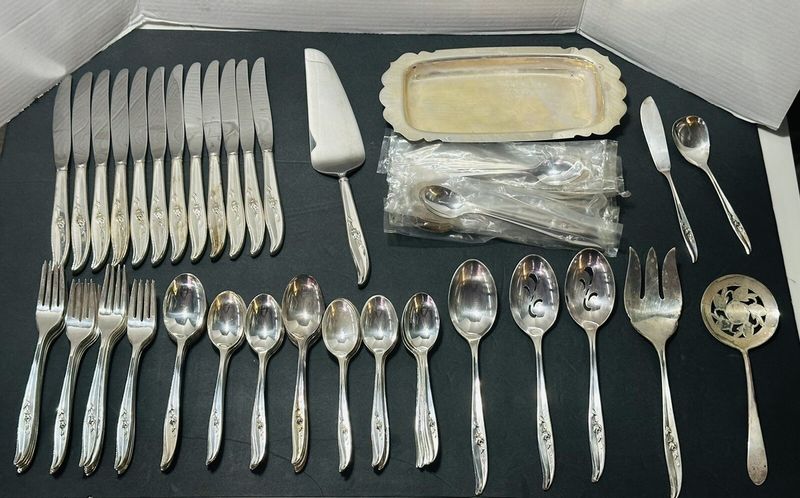
Few sights spark nostalgia quite like the glint of polished silver on a Sunday table. In many homes, women regularly spent mornings brightening utensils and brass accents, ensuring every spoon and tray gleamed for guests.
This meticulous task required patience and pride, as tarnish easily dulled prized heirlooms. Plus, it was considered a mark of good housekeeping—nothing said “welcome” like a spotless tea service.
Old-fashioned cleaning creams and soft cloths were essential tools, and some even passed down secret polishing techniques. For those with a knack, the difference was dazzling, making this chore a point of household pride.







